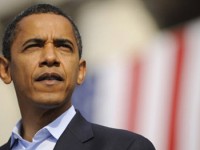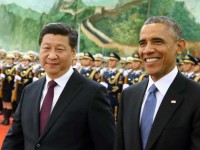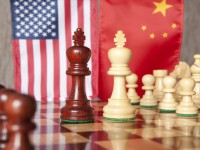Chen Xiangyang, Director and Research Professor, CICIR
Jan 09, 2015
Chen Xiangyang presents a comprehensive overview of the successful highlights of Chinese diplomacy in 2014, focusing on: 1) Xi’s refreshing diplomatic strategies; 2) diplomatic progress with major countries; 3) periphery diplomacy’s steady progress in both crisis control and rights preservation; 4) proactive “home court diplomacy”; 5) economic diplomacy; and 6) its role as a “responsible major country” in dealing with global challenges.
Chen Yonglong, Director of Center of American Studies, China Foundation for International Studies
Jan 07, 2015
Chen Yonglong explains the six “normal” states of interaction that will define the China-U.S. relationship: in redefining shared global power; in how leaders conduct dialogue; in economics; in strategic contention of hegemony and ideology; in their efforts to control dispute; and finally in their cycles of balance and rebalance.
Yu Sui, Professor, China Center for Contemporary World Studies
Jan 07, 2015
In the two and a half years since Beijing raised the concept of building a “new model of major-country relations,” the U.S. has made statements that it doesn’t completely subscribe. However, as Yu Sui explains, these concerns are out of fear of a unilateral U.S. concession to Chinese demands, rather than an understanding of the mutual benefits at stake.

Richard Weitz, Senior Fellow, Hudson Institute
Jan 06, 2015
Chinese experts underestimate the strong drivers underpinning the U.S. pivot to Asia, which will likely continue despite the Democratic losses in the recent congressional elections and the retirement of the U.S. Defense Secretary. Indeed, President Obama’s Asian policies enjoy bipartisan support and remain a White House priority despite economic and other challenges.
David Shambaugh, Gaston Sigur Professor and Director of China Policy Program at George Washington University, Distinguished Visiting Fellow at Hoover Institution of Stanford University
Jan 05, 2015
After several years of drift and decline, the US-China relationship ended 2014 modestly improved. The central task going into a new year is to build on this new momentum to strengthen the foundation of the relationship, build strategic trust, and work in tandem (or in parallel) on global issues of mutual concern.

Jan 05, 2015
What the Xi-Obama November agreements suggest is that the two leaders are able to communicate effectively on complex problems, negotiate in good faith, and reach mature understandings that serve the interests of both countries. Now, the question is, can that pattern be maintained in 2015 and beyond?

Wang Honggang, Deputy Directorof Institute of American Studies, China Institutes of Contemporary International Relations
Jan 02, 2015
China and US should deepen their cooperation and coordination in helping other countries to find a more sustainable development model, thus showing the world that their ideological differences can be mutually complementary rather than only contradictory.
Chen Xiangyang, Director and Research Professor, CICIR
Dec 31, 2014
Speaking at the recent Central Conference on Work Relating to Foreign Affairs, Xi Jinping spelled out China’s new foreign-policy vision, which many have characterized as a diplomatic manifesto to secure the “Chinese dream”.
Nathan Gardels, Editor-in-chief, THEWORLDPOST
Dec 23, 2014
China’s leaders need to look hard at the “Chinese Dream” they are trying to realize for their country and decide if that dream rests more on cooperation at this critical moment with the world’s other largest economy, the United States, or on an absurd and outdated allegiance to the bizarre and historically obsolete feudal regime of the Kim family in Pyongyang.
Wu Jianmin, Former President, China Foreign Affairs University
Dec 23, 2014
Wu Jianmin relays his concluding remarks from the Second China-U.S. Policy Forum in Beijing on December 13th – 15th, reiterating the history of China’s opening up to the West, and more recent phases of China-U.S. cooperation. Wu believes the U.S. and China can identify convergent interests, and make the foundation of the China-U.S. relationship stronger and stronger.
Back to Top

- China-US Focus builds trust and understanding between the U.S. and China through open dialogue among thought leaders.
- Our Offerings
- Topics
- Videos
- Podcasts
- Columnists
- Research Reports
- Focus Digest
- Stay Connected
-
Thanks for signing up!
- Get the latest stories from China-US Focus weekly.